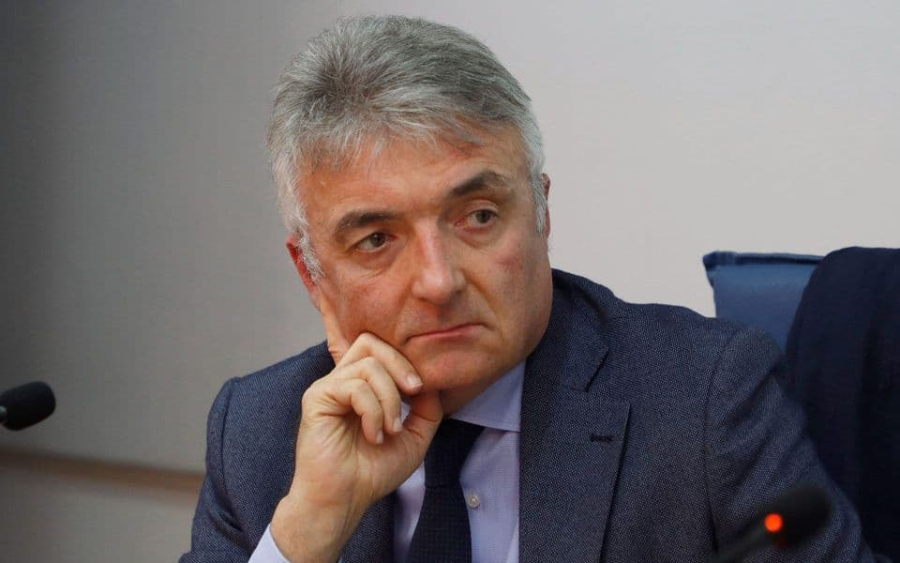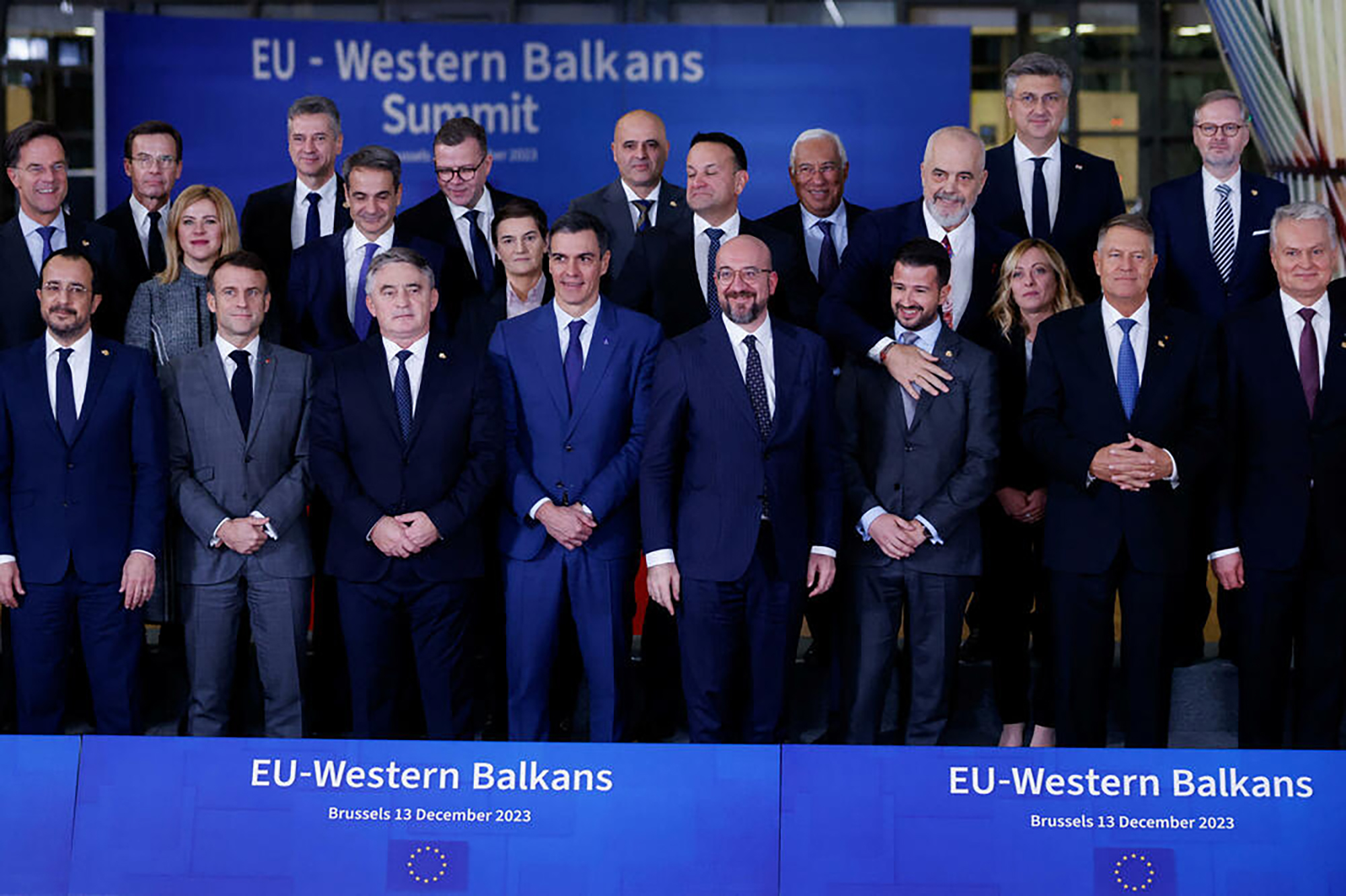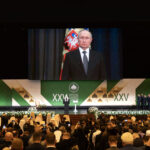Montenegrin authorities, in the third setting after the changes from August 2020, are finally starting to “achieve results” in foreign policy as well.
We are not referring here to the (official) accelerated movement of Montenegro towards the European Union – because European friends and partners are primarily, if not entirely, responsible for that process. It is obvious that, after years – it should be repeated: of unnecessary and unjustified stagnation, usually explained as “enlargement fatigue” and similar euphemisms – in Brussels and in major European capitals they decided to help Montenegro – regardless of internal political circumstances, despite threats and negation of the postulates of the civil state and despite the worrying growth of national-chauvinism in all areas of social life – from education, through culture, to the media.
The new set of Montenegrin authorities, in addition to declarative statements about commitment to the European agenda and reliable alliance in NATO, managed, in the first months of their mandate, to spoil relations with at least three neighbors. That is: to publicly, without much need or reason, question – in a way that leaves no doubt – their sincere commitment to the principles of Montenegrin foreign policy, which were confirmed in writing by all three post-August governments.
The first case is Croatia. The scars of the last war, in which Montenegro played the role of a kind of “voluntary hostage” and the very complex situation regarding Prevlaka, currently “frozen” by the Interim Agreement, required a lot of caution and mutual understanding. Croatia was supportive – we should not forget that it provided free of charge a complete translation of the “Acquis communautaire”, a necessary documentation base in the process of European integration.
Regardless of all that, the new Montenegrin government managed to cause unnecessary sparks in communication with Zagreb. While for the dispute regarding the ownership of the ship “Jadran” one could find excuses for clumsy and rather crude statements (primarily by Defense Minister Krapović), there is no justification for directly denying the meaning and message of the text on the memorial plaque of the war camp in Morinj. Unfortunately, the Minister of Foreign Affairs Ivanović joined Krapović in his attitude. Their intimate ideological positions are, in fact, the matrix of Spajić’s government’s policy: on a general level, there is official complementarity with Euro-Atlantic principles, but in all sensitive and concrete issues, anti-Western sentiment and attitude clearly emerges. The messages from Zagreb quickly calmed Spajic’s ministers – the European agenda is still an absolute priority. Delicate topics await a better time – both sides hope.
The situation with Bosnia and Herzegovina, which, seven or eight years ago, overcame the negotiations on border definition, has been under constant pressure since August 2020. There is a clear preference of the new official Podgorica for communication with Banja Luka. Dodik’s irregular official/”private” visit to Podgorica, during which, among other things, all protocol rules were ignored, remained virtually without reaction from the Ministry of Foreign Affairs (Ivanović), even after the protest note from Sarajevo. The general situation, confrontations and destructive influences from the region (Serbia, Croatia) in Bosnia and Herzegovina make the mistakes of the neighbors from Montenegro to appear as minor ones.
With Kosovo, things took a very negative turn with the vote of the head of the Montenegrin delegation in the Political Committee of the Parliamentary Assembly of the Council of Europe (PACE). That lady was against the report submitted by Dora Bakoyannis, the former Minister of Foreign Affairs of Greece, which supported the accession of the Republic of Kosovo to the Council of Europe. Reactions from the Government of Montenegro were twofold – on one side there are Albanian ministers, and on the other, ministers who are ready to say that they would also vote against Kosovo, but also those who are not ready to say anything about it.
The silence of the Montenegrin leadership was broken by Minister of European Affairs, Mrs Gorčević. The inappropriate and uncultured verbal attack on her by Serbian President Vučić did not affect the change in the performance of the President and Prime Minister. Mrs Gorčević remained alone in the public opinion that Montenegro, at the end of the procedure, will indeed vote for Kosovo’s membership in PACE.
The silence of her colleagues is even more striking – in the context of the overall relationship of Montenegro towards Kosovo as a neighbor – when you take into account the actions of the Serbian-Russian media and political structures that, in essence, call into question the very recognition of Kosovo.
The reactions of political analysts from Pristina, as well as the testimonies of their diplomats about many cases of incorrect use and designation of the name of the Republic of Kosovo in public documents, show that relations are going downhill. The ideological and political orientation of the last three governments (including the so-called technical government of Abazović, whose ethnic origin obscured the situation to some extent), their clear pro-Serbian position, i.e. their connection with the Church of Serbia and official and unofficial political and security circles in Serbia make a relationship towards Kosovo to be a complex one and under constant pressure.
The question of the so-called “de-recognition” of Kosovo is, however, practically impossible. It would imply a previous complete abandonment of the current foreign policy, its principles and postulates, i.e. abandoning the European agenda. The scenario for such a development of the situation could be based on a foreign policy U-turn. In the foreseeable future, this would only be possible as a consequence of the collapse of the European agenda in the Western Balkans and the collapse of the structure and the logic of the NATO presence.
Serbian nationalists in Serbia, Montenegro and Bosnia and Herzegovina – and not only the most extreme ones – could hope for such a possibility primarily with the victory of Trump in November and the return of Ambassador Grenell (or someone with his logic, instructions and performance) to the Western Balkans.
The exception to the trend that is present when it comes to Montenegro’s relations with Croatia, Bosnia and Herzegovina and Kosovo is, of course, Serbia. There is, to put it mildly, an inconsistent and extremely permissive attitude of official Podgorica towards Serbia. This relationship is such that, in many segments, it represents a heavy blow to the essential elements of Montenegrin sovereignty and independence.
The deterioration of Montenegro’s relations with its neighbors (Albania, let us not forget, is still “pending” case there) has, therefore, one common denominator and reason: topics, disputes and problematic situations are directly related to the problems, attitudes and interests of the ruling, i.e. official policy of Serbia.
Or, even more clearly: Montenegro’s relationship with its neighbors is a victim of Montenegro’s relationship with one of them – Serbia.
The articles published in the “Opinions” column reflect the personal opinion of the author and may not coincide with the position of the Center
Miodrag Vlahović. Montenegrin politician and former diplomat. The first Minister of Foreign Affairs of Montenegro. Former Montenegro’s Ambassador to the USA, Canada, Iceland, Holy See, Order of Malta.




